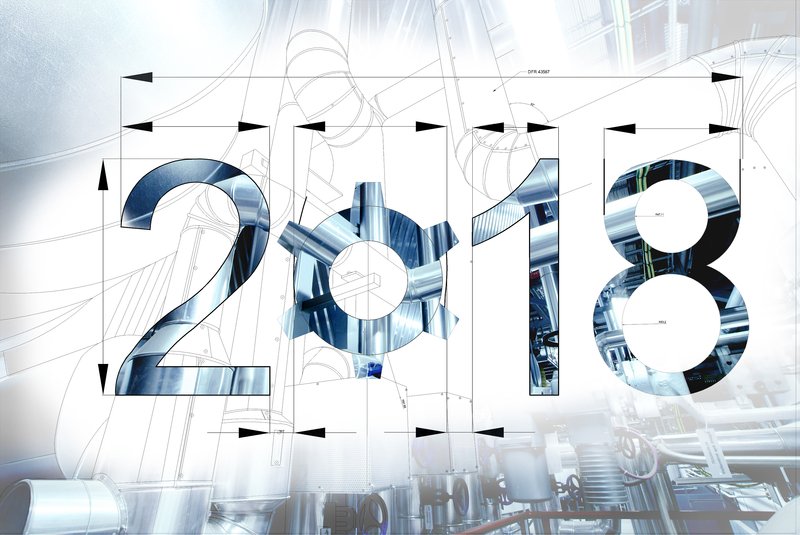How Can You Decide on the Production Scheduling Solution that’s Right for You?

Gene Caiola is a Partner and the Director of Services at Synergy Resources. Gene has worked with hundreds of small and large manufacturers in the areas of production and shop floor control, quality, accounting and Information Technology (IT). Gene offers practical advice to help manufacturers think through the scheduling challenge and make the best possible decision.
Part 2 of a 2-Part Series. Click here to read Part 1.
Q: How can the manufacturer decide on the scheduling solution that’s right for them?
Gene: We educate the customer by comparing and contrasting their scheduling options. ‘This is what you have to do to be successful with this versus that type of scheduling system. These are the kinds of companies that are successful with this or that type of scheduling.’ And so on.
Manufacturers need to think critically about themselves. What are your unique strengths as a company? You should be careful not to design for a scheduling solution that your company can’t support.
Q: You mentioned the three types of scheduling in Part I of this interview as Finite, Drum-Buffer-Rope (DBR) and Protected Flow Manufacturing (PFM). Talk about finite scheduling. What’s required to be successful?
Gene: Finite scheduling, by its nature, is very data-intensive. It’s all about scheduling around the finite capacity of the plant and its resources: after today’s 8 hours are finished, then tomorrow’s 8 hours are scheduled, and so on. Finite scheduling requires that routings and run times are greater than 90% accurate. The definition of capacity has to be accurate. The reporting method about work completed on the shop floor has to be accurate in order to take the load off the resource. That’s how it goes.
We advise our customers to really think about it. Manufacturers who repetitively make the same parts tend to be more accurate, but manufacturers with lots of custom work will need to define their processes in ways that accurately methodizes these tasks. Not all manufacturers can meet the high standards that are required to support finite scheduling solutions. For those who can’t, there are other ways to schedule such as DBR and PFM that we can recommend to them.
Q: Do all scheduling solutions treat variability the same?
Gene: Let’s say that a machine goes down or an employee doesn’t make it to work. That’s variability. Finite schedulers commit capacity to jobs but don’t typically provide buffer time for the whole work order in the event of variability. So, people who are using finite schedulers typically embark on programs that drive variability out of their shop floors. These include preventative maintenance programs, employee training programs, supplier management programs, etc. It’s possible for some manufacturers to anticipate and deal with variability outside of their scheduling systems.
On the other hand, accepting variability and protecting work with time buffering are a core premise of Drum Buffer Rope (DBR) and Protected Flow Manufacturing (PFM), two kinds of scheduling systems that we frequently recommend to our customers when variability is a fact of life on the shop floor.
Think of buffering this way. Suppose that I have to travel 100 miles and arrive at my office by 2:00 p.m. The average speed on the road is 50 MPH. On a perfect day, the journey will take two hours. When should I leave? Noon? Most of us intuitively think about the buffer time we might want to add to the two hours because we know that things can happen on the road such as slow-downs from highway repairs or accidents.
The road trip is a useful way to think about PFM. At any point in time on our journey, we can see where we stand. For example, if 75% of the time buffer we added has been used but we’re only 25% of the way to our destination, then we should become concerned about arriving on time. This will alert us to the situation. We can adjust what we’re doing and avoid being late. Manufacturers can treat jobs in the shop in a similar way. DBR began the use of buffers and Protected Flow Manufacturing further refined their use by introducing the concept of a “Threat Level”.
Q: How should manufacturers think about scheduling as a tactical versus strategic tool?
Gene: Scheduling is tactical when the objective is to get orders out on time. Manufacturers need to keep their customers happy. Scheduling serves a very useful, day-to-day function.
Scheduling can be a strategic tool to help move the company forward, too. Manufacturers need to understand how they may be able to manage their resources to do more without negatively impacting their existing customers. Can the scheduling system prove out how the shop can support the manufacturer’s plan to win new business in other segments of the economy? How can the available capacity be used to generate more profits for the company? If the capacity level was changed, how might it impact throughput? Scheduling can provide answers to people who are making these kinds of strategic-level decisions.
Q: Why is it important for manufacturers to know themselves?
Gene: If you don’t make changes to support the next level of growth, in the worst case scenario growth can actually hurt or even kill the business. When you get to a higher sales plateau but haven’t adjusted the operations accordingly, you can fall backwards. Customers will be disappointed by your inability to deliver on-time.
Manufacturers should think about the management of information in the same context as buying a new machine. A machine is an investment but a good functioning scheduling system is a great asset, too. Manufacturers should appreciate the value of a scheduling system that can model what’s possible for their businesses. Manufacturers can maximize profits when they know exactly how much more they may be capable of doing.

